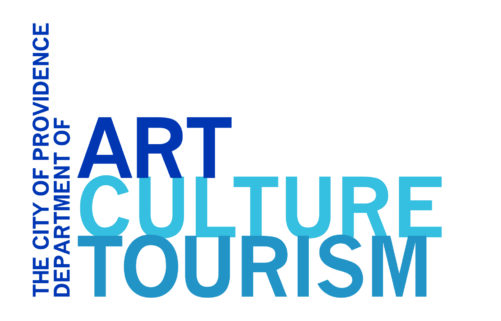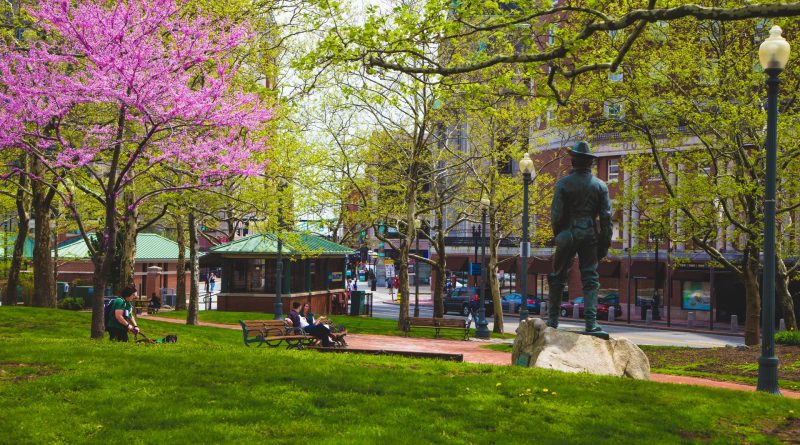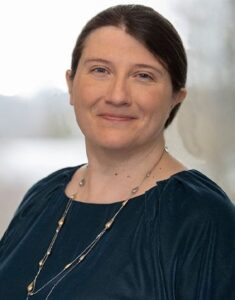Special Committee for Commemorative Works
The Department of Art, Culture + Tourism is excited to be stewarding the administration of the City’s new Special Committee for Commemorative Works.
To propose a new commemorative work for the City of Providence or make a request for review of an existing commemorative work, go here.
To review materials from past meetings of the Special Committee, go to the City of Providence Open Meetings Portal:
- January 15, 2021 – video documentation
- February 12, 2021 – video documentation
- October 7, 2021 – video documentation
Below are some answers to frequently asked questions about the nature and purpose of the Special Committee:
- What is a “Commemorative Work?”
For the purposes of this policy, “Commemorative Works” (hereafter referred to as “CW”) are monuments, memorials, markers, and other similar permanent installations, as well as temporary structures, installations, or events, intended to express or reflect the collective memory of an individual, group, or event, and which are accepted by the City and installed or located on City property with City permission. It is important to note that the category of CW excludes works of public art and place/street names. For more information on review processes and criteria for public art, please see the Providence Art in City Life Master Plan.
- What will a proposal consist of?
Proposals will be submitted through an online form where applicants will be asked to provide the following information: applicant contact info (first and last name, street address, email address and phone number), the name and description of the existing CW, the address of the CW, the recommended action (modification including structural changes and reinterpretation, relocation, or de-accession/removal), rationale for recommended action, details on recommended action (eg. site to be relocated, details of modification), contact info for two subject experts who can speak to the viability and appropriateness of the proposal (first and last name, email address, phone number, relationship/affiliation to CW).If an applicant is proposing a new CW to be reviewed for social/cultural merit they will be asked to provide the following information: who or what will be commemorated, rationale for commemoration, proposed name of new CW, proposed site of new CW.
- What is the proposed structure of the Committee?
The Special Committee for the Review of Commemorative Works is a public body staffed by the Department of Art, Culture + Tourism (ACT). Per the recommendation of the Art in City Life Master Plan and City Council, the Committee shall be comprised of individuals who are scholars in the fields of history or commemoration or have a background in local history, culture, or community building. Two of these individuals, the Director of ACT and the City Archivist, will be non-voting ex officio members. The Art and City Life Commission, the Providence City Council, the City Archivist, the Director of ACT, and the Mayor will appoint voting members that will serve for a three-year term.- Special Committee Members by Appointing Entity:
- Art and City Life Commission – Becci Davis (artist, public humanist) *click here to see Becci’s presentation to the Art and City Life Commission about her work.
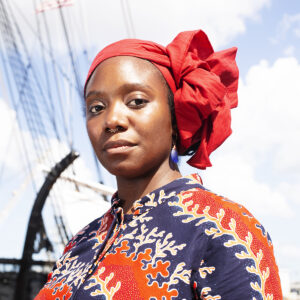 Becci Davis was born on a military installation in Georgia named after General Henry L. Benning of the Confederate States Army. Her birth initiated her family’s first generation after the Civil Rights Act and its fifth generation post-Emancipation. Becci is a Rhode Island-based interdisciplinary artist who finds inspiration in exploring natural and cultural landscapes, in addition to her experiences as a daughter, mother, American, and Southern born and raised, Black woman. After earning a MFA from Lesley University College of Art and Design, Becci was the recipient of the St. Botolph Club Foundation Emerging Artist Award in Visual Art, the Rhode Island State Council on the Arts Fellowship in New Genres, the Providence Public Library Creative Fellowship, and the RISD Museum Artist Fellowship. Becci lives with her family in Wakefield, Rhode Island, maintains a studio in Providence, and is currently an adjunct lecturer in the Department of Visual Art at Brown University.
Becci Davis was born on a military installation in Georgia named after General Henry L. Benning of the Confederate States Army. Her birth initiated her family’s first generation after the Civil Rights Act and its fifth generation post-Emancipation. Becci is a Rhode Island-based interdisciplinary artist who finds inspiration in exploring natural and cultural landscapes, in addition to her experiences as a daughter, mother, American, and Southern born and raised, Black woman. After earning a MFA from Lesley University College of Art and Design, Becci was the recipient of the St. Botolph Club Foundation Emerging Artist Award in Visual Art, the Rhode Island State Council on the Arts Fellowship in New Genres, the Providence Public Library Creative Fellowship, and the RISD Museum Artist Fellowship. Becci lives with her family in Wakefield, Rhode Island, maintains a studio in Providence, and is currently an adjunct lecturer in the Department of Visual Art at Brown University. - Providence City Council – April Brown (arts administrator, Langston Hughes Community Poetry Reading)
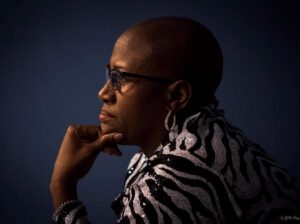
April Brown is an educator, ordained minister, poet, singer and actor living in Providence, RI. She has performed in the United States, Japan, and Israel. Ms. Brown holds a B.A. from The American University in Washington, DC and an Ed.M. from the University of Rhode Island. She is the program director of the Langston Hughes Community Poetry Reading. Her passion for arts and culture education manifested itself with experience in museum work with the Smithsonian Folklife and Cultural Heritage and the National Museum of American History she worked on the as an artist programmer for the 2004 and 2008 Folklife Festival, the National World War II Reunion on the Mall and the Celebration of Baseball. Locally she has worked with Rhode Island Black Storytellers and the National Association of Black Storytellers as the African marketplace director. Recently, she served as the Local Program Director for Turnaround Arts: Providence. She has worked in educational systems with a focus on cultural engagement; professional development; and local community activism.
- ACT Appointee – Dr. Quenby Olmsted Hughes (Dean of Arts and Sciences, Rhode Island College) * click here to see Dr. Hughes’ faculty webpage
A proud alum of the RIC History and Honors program, Dr. Quenby O. Hughes returned to the College in 2004 after completing her A.M and PhD in Modern American History at Harvard University, as well as a two-year graduate fellowship with a focus on nonprofits at the Harvard Kennedy School’s Hauser Institute for Civil Society. Her scholarly interests in nongovernmental organizations and the international relations of the labor movement are reflected in her book, In the Interest of Democracy: The Rise and Fall of the Early Cold War Alliance Between the American Federation of Labor and the Central Intelligence Agency (2011). Fascinated as well by the history of social movements; immigration; science, technology and medicine; and in the American West (particularly environmental history), Hughes enjoys introducing her students to those subjects and to the craft of historical writing. In recognition for her excellence in teaching and service, she was awarded the 2019 RIC Alumni Faculty Award.
- City Archives appointee – Ray Rickman (executive director, Stages of Freedom)
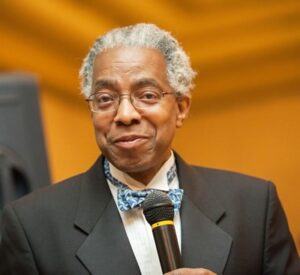
Ray Rickman is a former State Representative from the College Hill area, in Providence who served as Rhode Island Deputy Secretary of State. Amongst his many pieces of legislation was a bill to create the position of State Poet Laureate. Rickman, a long-time rare book dealer and former host of “Bestsellers” on Rhode Island Public Television, is considered a leader in the promotion of African-American history. He often lectures in the community on a range of cultural topics pertaining to African-American history and American literature. Rickman was the first Treasurer of the Heritage Harbor Museum, a Smithsonian affiliate. Governor Lincoln Chafee nominated Rickman to serve on Rhode Island’s Art Council.
- Mayor Smiley – Tiffini Bowers (exhibition curator, Brown University)

Hired as the inaugural Brown Library Exhibition Curator in 2016, Tiffini Bowers provides leadership, vision, and strategic direction for the Library’s exhibition program, which is committed to supporting the Library’s mission; aligning with Brown’s standards and priorities; and upholding professional standards in conservation, preservation, scholarship, and collections care and management. An award-winning museum curator with over 15 years of experience, Tiffini has worked with numerous museums, cultural institutions, and entertainment organizations including the Smithsonian Institution, Hermosa Beach Historical Society, Hollywood Black Film Festival, Autry/Southwest Museum of the American Indian, and California African American Museum. - ACT – Joe Wilson Jr. (Director, ACT) non-voting exofficio
- City Archives – Caleb Horton (City Archivist) non-voting exofficio
- Art and City Life Commission – Becci Davis (artist, public humanist) *click here to see Becci’s presentation to the Art and City Life Commission about her work.
- Special Committee Members by Appointing Entity:
- How can I learn more about local commemorative works?
See below for resources with information about commemorative works in Providence and Rhode Island. NOTE: Works of art that are not commemorative in nature are not under the jurisdiction of the Special Commission for Commemorative Works.- City of Providence Commemorative Works Researched by the Providence City Archives (Incomplete)
- City of Providence Commemorative Works Inventory Pilot Site curated by Dr. Renee Ater and students at Brown University.
- Roger Williams Park Conservancy Map of Notable Art
- Commissioned Memorials at Brown University
- Downtown Providence Public Art and Commemorative Works
- Smithsonian Institution Records for Outdoor Sculpture in Providence
- Rhode Island Heritage and Preservation & Heritage Commission: Outdoor Sculpture of Rhode Island
- Rhode Island State Council on the Arts Collection on Publicart.org
- Caranci, Paul F., and Heather A. Caranci. Monumental Providence: Legends of History in Sculpture, Statuary, Monuments and Memorials. 2015.
- Freeman, Robert and Vivianne Lasky. Hidden Treasures. 1980.
- City of Providence Traffic Engineering Department. A Complete List of Streets, Squares and Places, and Traffic Signal Intersections in the City of Providence. August 1994.
- What is the ACT Advisory Board on Commemorative Works (ABCW)?
Made up of the leaders of humanities, cultural heritage, and community organizations who provide strategic advice about best practices and emerging research, the ABCW offers direction and advice to ACT, making connections to the Commemorative Works process with their networks, partners, and community groups. Responsibilities of the ABCW include:
- Advising ACT on the commemorative works review process and best practices
- Sharing the Request For Review & Applications for New Commemorative Works with networks
- Identifying content experts relevant to applications received
- Promoting participation in public hearings
- Providing testimony at public hearings as appropriate
- Helping ACT determine which applications should move forward to public hearings.
- ABCW Members/affiliations in alphabetical order by surname:
- Molly Dickenson, Rhode Island State Council on the Arts (RISCA) Percent For Art Program
- Stephanie Fortunato, independent public humanities consultant
- Dr. Elizabeth Francis, Executive Director, Rhode Island Council for the Humanities (chair)
- Dr. Christian Gonzales, Professor of Native American History, University of Rhode Island
- Dr. C. Morgan Grefe, Executive Director, Rhode Island Historical Society
- Vatic Kuumba, independent playwright, poet, and multi-media artist
- Jazzmen Lee-Johnson, independent visual artist, scholar, composer, and curator
- Dominic Molon, Richard Brown Baker Curator of Contemporary Art, RISD Museum, City of Providence Art and City Life Commission
- Marta Martinez, Executive Director, Rhode Island Latino Arts
- Kate Monteiro, public historian
- Silaphone Nhongvongsouthy, Vice President, Laotian Community Center
- Dr. Ronald Onorato, Professor of Art History and Material Culture, URI
- Taylor Polites, public historian and writer
- Brent Runyon, independent historic preservation consultant
- Sylvia Ann Soares, independent performing artist
- Loren M. Spears (Niantic/Narragansett), Executive Director, Tomaquag Museum
- Sarah Zurier, Senior Historic Preservation Specialist at the RI Historical Preservation & Heritage Commission
- What is “social and cultural merit” and how will the Committee determine whether a proposal has it?
Committee members will review applications using a Social & Cultural Merit + Rubric (see below). In general, the City will not review any proposal that:- Is dedicated to a living person, or to a person who has been deceased for less than ten years.
- Commemorates an event that occurred less than twenty years ago.
- Already exists in identical form elsewhere OR proposes a modification that exists in identical form elsewhere, locally, nationally, or internationally.
- Communicates the intent, either explicitly or implicitly, of conveying hate speech or provoking violence against protected groups.
- Has the purpose of promoting, favoring or inhibiting any religion or which would appear to a reasonable person that the City is promoting, favoring, or opposing a religion.
Assuming that an RFR or Proposal Submission meets these baseline criteria, the Committee should evaluate it according to the rubric below, with its various domains, and using the following scale:
Response Scale:
5 = Strongly Agree
4 = Agree
3 = Neutral
2 = Disagree
1 = Strongly Disagree
THE FOLLOWING DOMAINS PERTAIN SPECIFICALLY TO PROPOSED CHANGES TO EXISTING CWS
LOCAL AND COMMUNITY RELEVANCE:
- Work represents a significant event, group, or individual in Providence’s history that is not commemorated elsewhere in the city.
- RFR makes a strong argument for why the proposed change is necessary at this particular moment in time.
- RFR clearly articulates the intended audiences for the proposed change, and makes a compelling argument for why the proposed change would be relevant to them.
- Proposed change would allow the work to remain relevant to current audiences and/or engage with additional potential audiences in the future.
- Proposed change would allow the work to become more welcoming, engaging, and/or vital to the everyday life of adjacent and/or nearby communities.
- RFR indicates that adjacent and/or nearby communities have played an instrumental role in the proposal’s conceptualization and development to date, and that the proposed change would continue to be developed inclusively and collaboratively with these communities.
PUBLIC LIFE AND PUBLIC SPACE
- Proposed change would enhance the work’s ability to serve as a locus of local identity, belonging, and social life for people from different socioeconomic groups.
- Proposed change has potential to generate, enhance, and/or contribute to social life and vitality of surrounding public spaces and/or the neighborhood at large.
- In cases where relocation is requested, work has the potential to generate, contribute to, and/or enhance existing social activity in surrounding public spaces and/or the neighborhood at large.
- Proposed change seeks to engage audiences as subjects, actors, and participants, and would invite public participation in a form that is appropriate to its subject matter and form.
DIVERSITY, EQUITY, AND INCLUSION
- CW represents a group, community, individual, or event to whom/which one or more commemorative works are dedicated elsewhere in the city.
- Proposed change would allow the CW to better reflect the perspectives and experiences of communities that are not currently represented by the CW but that are connected to the CW historically and/or geographically.
- Proposed change would fill a critical gap in the historical record by engaging with and prompting reflection, dialogue, and awareness of the stories, perspectives, experiences of historically marginalized and oppressed communities.
- Proposed change establishes a clear connection between past and present injustices and inequities in the service of advancing contemporary movements for social justice.
COMPLEXITY
- Proposed change embraces historical complexity and creates space for a range of affective responses.
- Proposed change asks something of its audiences. Its meaning is open-ended, and it is open to debate and multiple interpretations.
- RFR indicates potential for cross-platform commemoration, ritual re-activation, and/or ongoing interpretation (e.g. annual events such as performances, parades, or talks; educational curricula, etc.)
SITING, DESIGN, AND CONSERVATION
NOTE: The Special Committee for the Review Commemorative Works primarily evaluates questions of social and cultural merit. However, in some cases siting and design are inextricable from questions of social and cultural merit. In addition to the following review, a thorough review with regard to siting, design, and conservation will be conducted by the Art in City Life Commission, as well as by other City bodies with authority over the proposed site.
- RFR reflects an understanding of the history and contemporary uses of the current or proposed new site.
- Form of the proposed change is appropriate to its subject matter, vision, and commemorative intent.
THE FOLLOWING DOMAINS PERTAIN SPECIFICALLY TO NEWLY PROPOSED CWS
LOCAL AND COMMUNITY RELEVANCE
- Proposed work represents a significant event, group, or individual in Providence’s history that is not already commemorated elsewhere in the city.
- Proposal makes a strong argument for why the event, group, or individual should be commemorated at this particular moment in time.
- Proposal clearly articulates the intended audiences for the proposed work, and makes a compelling argument for why the proposed work would be relevant to them.
- Proposed work has potential to remain relevant to contemporary audiences and engage with additional potential audiences in the future.
- Proposal indicates thoughtful consideration of how the proposed work would be a welcoming, engaging, and/or vital addition to the everyday life of adjacent and/or nearby communities.
- Proposal indicates that adjacent and/or nearby communities have played an instrumental role in the proposal’s conceptualization and development to date, and that the proposed work would continue to be developed inclusively and collaboratively with these communities.
PUBLIC LIFE AND PUBLIC SPACE
- Proposed work has potential to serve as a locus of local identity, belonging, and social life for people from different socioeconomic groups.
- Proposed work has potential to generate, enhance, and/or contribute to a variety of social activities in the city’s public spaces.
- In cases where a general location is indicated, proposed work has potential to generate, contribute to, and/or enhance existing social activity in surrounding public spaces and/or the neighborhood at large.
- Proposal seeks to engage audiences as subjects, actors, and participants, and invites public participation in a form that is appropriate to its subject matter and form.
DIVERSITY, EQUITY, AND INCLUSION
- Proposal reflects the perspectives and experiences of a group, community, individual, or event who/that is not currently represented in the city’s commemorative landscape.
- Proposal fills a critical gap in the historical record by engaging with and prompting reflection, dialogue, and awareness of the stories, perspectives, experiences of historically marginalized and oppressed communities.
- Proposal establishes a clear connection between past and present injustices and inequities in the service of advancing contemporary movements for social justice.
COMPLEXITY
- Proposal embraces historical complexity and creates space for a range of affective responses.
- Proposal asks something of its audiences. Its meaning is open-ended, and it is open to debate and multiple interpretations.
- Proposal indicates potential for cross-platform commemoration, ritual re-activation, and/or ongoing interpretation (e.g. annual events such as performances, parades, or talks; educational curricula, etc.)
SITING, DESIGN, AND CONSERVATION
NOTE: The Special Committee for the Review of Commemorative Works primarily evaluates questions of social and cultural merit. However, in some cases siting and design are inextricable from questions of social and cultural merit. In addition to the following review, a thorough review with regard to siting, design, and conservation will be conducted by the Art in City Life Commission, as well as by other City bodies with authority over the proposed site.
- In cases where a general location is indicated, the proposed location is appropriate to the proposed work’s content, vision, and commemorative intent.
- In cases where a general location is indicated, the proposal reflects an understanding of the history, contemporary uses, and possible future activations of the proposed location.
Thank you to Commemorative Projects Fellow Emma Boast for her hard work. See here for more about her research.
To propose a new commemorative work for the City of Providence or make a request for review of an existing commemorative work, go here.
